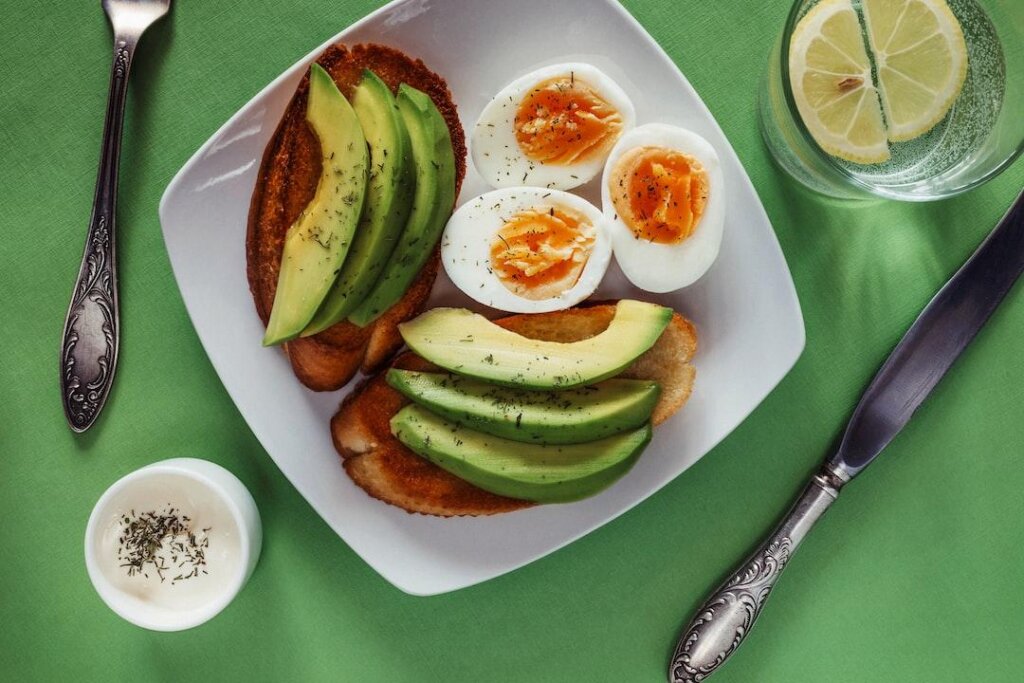Muscle Mac

Dietary fat: good or bad? It depends. The types of fat you eat play a big role in your health, so you should ensure you’re getting what you need and leaving what you don’t. Optimal health starts with understanding the differences between good fats vs. bad fats.
You need to eat fats. It’s a strange statement at first glance, but it makes sense when you know how dietary fats affect your body systems.
Fats are an important energy source, giving you the fuel your body needs for daily activities and times of physical stress and exertion. Carbohydrates are also a source of energy, so why does your body also need fats for energy? Simple: fats are stored better, so they last longer.
Your body stores fat in adipose tissue, specialized fat cells that can expand. Mixed with cholesterol from the liver, this fat is known as triglycerides. When your body needs energy, the fat cells break down the triglycerides into glycerol and fatty acids and release them for energy use in your muscles, tissues, and other organs.
Another benefit of fats is that they’re akin to nutrient energy balls. Unlike carbohydrates and proteins, which release 4 kcal of energy, fat releases 9 kcal.
Creating and regulating hormones is another vital role of fats. Adipose tissue makes and releases many hormones, including steroids, leptin (for hunger), estrogen, androgen, adipsin (for insulin regulation), cytokines, and others.
Without fat stored in your fat cells, your body cannot function properly or communicate with different body systems to keep you healthy and in prime condition. Fatty acids from your adipose tissue also work with your intestines and brain to regulate serotonin, the mood and metabolism hormone.
Good fats are essential for a healthy body. When you eat the right types of fat, you help your body reduce blood cholesterol levels, control your blood sugar levels, lower your risk for heart disease, and support your growth. It also helps you absorb those vital fat-soluble nutrients — vitamins A, D, E, and K.
There are several types of good fats: omega-3 fatty acids, monounsaturated fats, and polyunsaturated fats.
Omega-3s are long-chain fatty acids that support cell membranes and cell interaction. They are crucial for a healthy brain and eyes and concentrate in high levels there. These fatty acids also help your immune system, endocrine system, heart, blood vessels, and lungs.
Monounsaturated fats are a type of unsaturated fat found in a liquid state at room temperature. Unlike saturated fats — a harmful kind of fat — monounsaturated fats help reduce the bad stuff and balance some body systems. They are most known for lowering LDL (bad cholesterol) and strengthening your cells.
Polyunsaturated fats are another healthy fat; you already met one above. Omega-3s and omega-6s are considered polyunsaturated because of their chemical structure. Omega-6s are found in many more foods, so getting these fats into your diet is a lot easier.
Eating polyunsaturated fats helps reduce the risk of heart disease, balance your HDL (good) and LDL cholesterol, lower blood pressure, control blood sugar, and calm inflammation.
Unlike good fats, bad fats aren’t your friend. These fats have the opposite effect on your body and influence many systems badly.
Frequently eating foods high in bad fats raises your risks of cardiovascular disease, weight gain, stroke, and other health conditions. These high-fat foods come primarily from animal products, which have more calories per gram.
Trans fats are the worst type. Also called artificial trans fats or partially hydrogenated oils, these fats are industrial products that have no benefit to your body. They clog arteries, raise blood pressure, and can put you at a major risk for stroke, heart disease, and diabetes.
Creating a healthy diet rich in good fats is easy. All you need to do is identify the delicious foods that contain these health-boosting elements.
Sunflower oil and some other vegetable oils are high in omega-6 polyunsaturated fats. Olive oils and peanut oils are rich in monounsaturated fats. So opt for these cooking oils over others, but make sure you use them in moderation.
You’ll want to avoid corn, soybean, grapeseed, canola, partially hydrogenated, and palm oil. Not only do these oils have unhealthy fats, but they are highly refined and stripped of any good stuff.
When cooking with healthy oils, lower the heat a bit. These oils have a lower smoke point, which will burn and release free radicals if you get them too hot. Also, skip the deep frying and turn to sautéing, broiling, or roasting.
Healthy fats are widely available in grocery stores and markets, so get some unsalted nuts and seeds if you’re looking for healthy snacks. These healthy fat foods are rich in monounsaturated and polyunsaturated fats, giving you energy and boosting your heart health.
Whole foods like fruits, vegetables, legumes, eggs, fish, and whole grains will give you a mixture of fats, carbohydrates, proteins, vitamins, and minerals.
Too much of a good thing can become a bad thing. That’s why you need to balance your fat intake. Experts recommend that fats should be about 20 to 35% of your total daily calories, with saturated fats no more than 5% of that amount.
There you have it: Good fats vs. bad fats explained. Enjoying healthy-fat foods in moderation gives your body and mind optimal nutrition for the day ahead. If you’re ready for balanced fats and high proteins, grab a bowl of Muscle Mac® Pro Macaroni & Cheese. You’ll love the creamy white cheddar and healthy probiotics that boost your body and mind. Take home your favorite today!